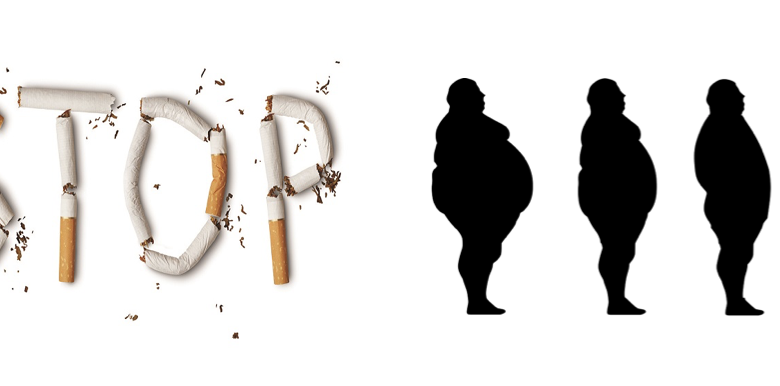
Why Maintaining Weight Can Be Trickier Than Losing It
Why maintaining weight can be trickier than losing weight is a question that many of us grapple with after achieving our weight loss goals. It’s a common experience to feel like we’ve reached the finish line only to realize that the real challenge lies in keeping the pounds off.
The journey from losing weight to maintaining it is a complex one, influenced by a variety of factors, including our psychology, physiology, and lifestyle choices.
This post will explore the reasons behind this phenomenon, examining the psychological hurdles, physiological changes, and environmental influences that can make weight maintenance a continuous effort. We’ll delve into how our bodies adapt to weight loss, the role of hormones, and the importance of establishing sustainable lifestyle habits.
By understanding the challenges, we can develop strategies for long-term success and create a healthy relationship with our weight.
The Psychological Aspect

Maintaining weight loss is a psychological battle as much as a physical one. It requires a significant shift in habits, lifestyle, and mindset, which can be challenging for many individuals. While the initial motivation to lose weight may be strong, sustaining that motivation over the long term can be difficult.
The Role of Motivation and Willpower in Long-Term Weight Management
Motivation and willpower are crucial for maintaining weight loss. Initial weight loss is often fueled by a strong desire to achieve a specific goal, such as fitting into a certain outfit or improving health. However, as time passes, this initial motivation can fade, and maintaining weight loss becomes more challenging.
“The key to long-term weight management is not just about willpower, but also about developing healthy habits and finding ways to stay motivated.”
To sustain motivation, it’s important to identify personal reasons for weight loss and set realistic goals. It’s also beneficial to develop strategies for dealing with challenges and setbacks. For example, tracking progress, celebrating milestones, and seeking support from friends, family, or a therapist can all help maintain motivation and willpower.
It’s easy to get caught up in the initial thrill of weight loss, but the real challenge lies in maintaining that progress. It’s like trying to navigate a winding path while constantly adjusting your course. And just when you think you’ve found your groove, the temptation of indulging in “superfoods” (are they really worth the hype?
Check out this article ) can throw you off track. Ultimately, sustainable weight management is about finding a balance that works for you, not relying on fleeting fads or miracle foods.
Common Psychological Barriers to Weight Maintenance
There are several psychological barriers that can hinder weight maintenance efforts.
Emotional Eating
Emotional eating occurs when people use food to cope with negative emotions such as stress, sadness, or boredom. This can lead to overeating and weight gain, making it difficult to maintain weight loss.
Maintaining weight can be a real challenge, especially when you’re used to the satisfaction of seeing the numbers on the scale go down. It’s all about finding that sweet spot where you’re eating enough to fuel your body but not so much that you gain weight.
One of the biggest challenges is cooking healthy meals that are both satisfying and delicious. It’s easy to make mistakes that can sabotage your efforts, so it’s worth checking out 7 mistakes to avoid when cooking chicken.
After all, mastering the art of healthy cooking is a key ingredient in the journey to maintaining a healthy weight.
“Emotional eating can be a powerful force, and it can be challenging to resist the urge to eat when you’re feeling down.”
To overcome emotional eating, it’s important to identify the triggers that lead to overeating and develop healthy coping mechanisms. This may involve practicing mindfulness, engaging in physical activity, or seeking support from a therapist.
It’s easy to get caught up in the thrill of shedding pounds, but maintaining a healthy weight can be a whole different ball game. It’s not just about reaching a goal; it’s about finding sustainable strategies that work for you long-term.
There are many unconventional ways to lose weight that don’t involve strict diets or grueling exercise routines, as you’ll discover in this article on losing weight without diet and exercise. Ultimately, the key to maintaining weight lies in finding a balance that you can comfortably sustain over time, and that might involve looking beyond the traditional approaches.
Body Image Issues
Body image issues can also contribute to weight maintenance challenges. Individuals who are unhappy with their bodies may be more likely to engage in unhealthy behaviors, such as restrictive dieting or over-exercising, which can lead to weight fluctuations and make it difficult to maintain weight loss.
“Body image issues can be a powerful force, and it can be challenging to resist the urge to eat when you’re feeling down.”
To address body image issues, it’s important to develop a positive body image. This may involve practicing self-acceptance, challenging negative thoughts, and focusing on the positive aspects of your body.
Social Pressure
Social pressure can also make weight maintenance challenging. For example, social events often involve food, and it can be difficult to resist the temptation to overeat when surrounded by others who are eating.
“Social pressure can be a powerful force, and it can be challenging to resist the urge to eat when you’re surrounded by others who are eating.”
To overcome social pressure, it’s important to develop strategies for navigating social events without overeating. This may involve bringing your own healthy food, choosing to eat before attending events, or politely declining food that you don’t want to eat.
Physiological Changes
Losing weight isn’t just about burning calories; it’s a complex process that involves physiological changes that can make maintaining that weight a challenge. Your body adapts to the new, lower calorie intake, and these adaptations can make it harder to stay at your target weight.
Metabolic Adaptation
When you lose weight, your body’s metabolism naturally slows down to conserve energy. This is a protective mechanism to prevent starvation. As you eat fewer calories, your body burns fewer calories at rest. This means you’ll need to consume fewer calories to maintain your new weight than you did to lose it.
The body adapts to weight loss by reducing metabolic rate, which means fewer calories are burned at rest. This makes it harder to maintain weight.
For example, if you lose 10% of your body weight, your metabolism may slow down by 5-10%. This means you’ll need to eat 50-100 fewer calories per day to maintain your new weight.
Hormonal Changes, Why maintaining weight can be trickier than losing weight
Weight loss also affects the levels of various hormones that play a role in hunger and satiety.
- Leptin:This hormone, produced by fat cells, signals to the brain that you’re full. When you lose weight, leptin levels decrease, which can increase hunger and make it harder to control your appetite.
- Ghrelin:This hormone, produced in the stomach, stimulates hunger. Ghrelin levels increase after weight loss, further contributing to increased appetite.
These hormonal changes can make it difficult to maintain a calorie deficit in the long term, as your body may constantly signal hunger and crave more food.
Set Point Theory
The set point theory suggests that each individual has a genetically determined weight range that their body tries to maintain. This weight range is influenced by factors like genetics, metabolism, and hormones. When you lose weight, your body may actively try to return to this set point by increasing hunger, slowing metabolism, and making it more difficult to maintain the weight loss.
The set point theory suggests that the body tries to maintain a specific weight range, making weight maintenance challenging.
While the set point theory is not universally accepted, it helps explain why some people find it easier to maintain weight loss than others. For some individuals, their body may be more resistant to change, making it harder to maintain a lower weight.
Epilogue: Why Maintaining Weight Can Be Trickier Than Losing Weight

Ultimately, maintaining a healthy weight is a journey that requires ongoing commitment and adaptation. It’s not a one-size-fits-all approach, and what works for one person may not work for another. By embracing a holistic approach that addresses both our physical and mental well-being, we can create a sustainable plan that supports long-term weight management.
Remember, it’s not about perfection, but about progress. Celebrate your successes, learn from your setbacks, and continue to strive for a healthier and happier you.






